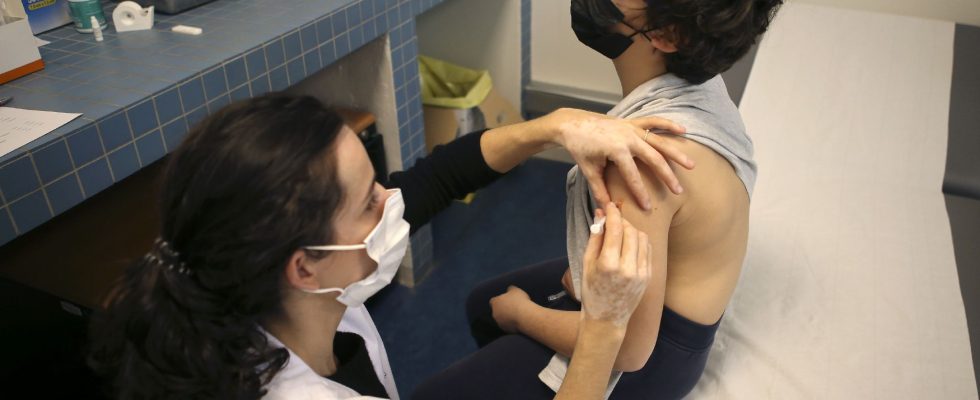Double ration for French students? From this Monday, October 2, the start date of the national vaccination campaign against papillomavirus (HPV), two injections will be offered to fifth grade students who wish them. A first, on the big day, and an encore to be carried out six months later. However, the WHO estimates that a “single dose […] already confers ‘solid protection'”, at this age. An opinion issued in December 2022, confirmed this Thursday, September 28 by a study published in the scientific journal The Lancetconducted on Indian, Ugandan and Vietnamese epidemiological data.
Immediately after the publication of the study of Lancet, Diane Harper and Marie Claire O’Dwyer, two American public health professors published in the journal a call to give only one injection. These same specialists, who hold cautious positions but in favor of vaccination, regularly see their positions diverted for the benefit of anti-vaccination campaigns: a truncated interview with Diane Harper is one of the most popular publications against the HPV vaccine on the social networks. It is therefore difficult for parents to navigate.
These contradictory opinions risk fueling preconceived ideas, while this vaccine against papillomaviruses, Gardasil, is already the target of misinformation – it would be neither safe nor useful, and would promote juvenile sexual relations, according to anti-vax movements, so many beliefs refuted by scientific literature. Despite everything, only 15% of French adolescents are vaccinated, compared to more than 80% in the United Kingdom and Australia, for example. Vaccination could, however, prevent a large part of the 6,000 cases of cancer per year which are caused by these sexually transmitted viruses.
If French experts recommend two doses, it is because with a single injection, adolescents benefit from less protection: “Systematic vaccination at one dose makes it possible to avoid a significantly lower number of cervical cancers. ‘uterus”, in fact detail the authors of the study of Lancet. Up to 30% less, according to the worst statistical scenario tested by researchers, public health doctors affiliated with the University of Laval, in Quebec. With a single dose, protection may not last more than twenty years, the scientists add.
Two doses is better, but one dose already helps a lot, explains in essence, theWHO and epidemiologists. “These data indicate that the effectiveness is still very high at one dose, which is interesting, if we are with a view to expanding global vaccination coverage. The WHO only recommends one dose, because it seeks to ensure that as many people as possible are vaccinated, and not to optimize the effectiveness of the injections”, explains to The Express Professor Jean-Daniel Lelièvre, head of the immunology and infectious diseases department at Henri-Mondor hospital (AP-HP) in Paris, and expert with the High Authority for Health.
Rich countries, which like France recommend two doses, thus offer themselves additional protection. A one-dose strategy saves money and simplifies administrative procedures. These are major advantages as vaccination against HPV fell by 25% worldwide during the Covid-19 crisis, according to the UN. In the press release explaining the new recommendations, WHO states: “Optimizing the HPV vaccination schedule should improve access to the vaccine. This should provide countries with the opportunity to increase the number of girls who can be vaccinated ” – girls remain the most affected, and therefore priority.
For the moment, the High Authority of Health, the institution responsible for these files in France, has not reassessed its recommendations in terms of vaccination strategy. And a change a few days before the campaign opens could further confuse the public health message that the government is trying to send. But it cannot be ruled out that in the future the institution may also decide to adopt the recommendations of the World Health Organization, to make the procedures a little easier for families and the general acceptance of the Gardasil vaccine. : one sting is less scary than two.
